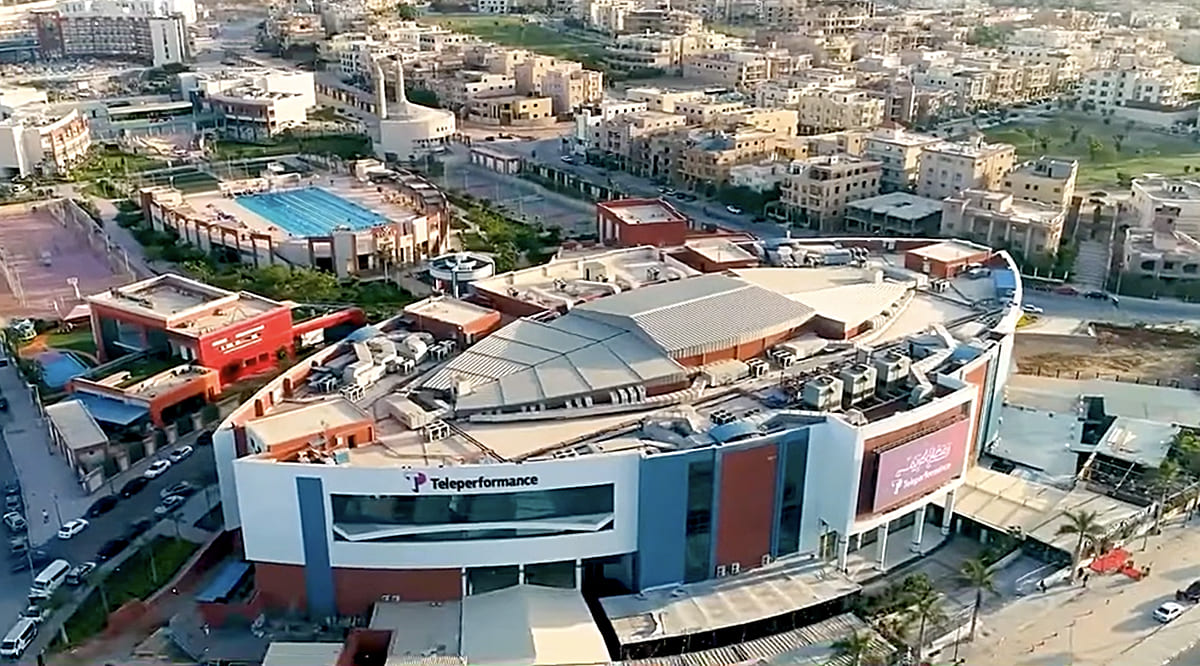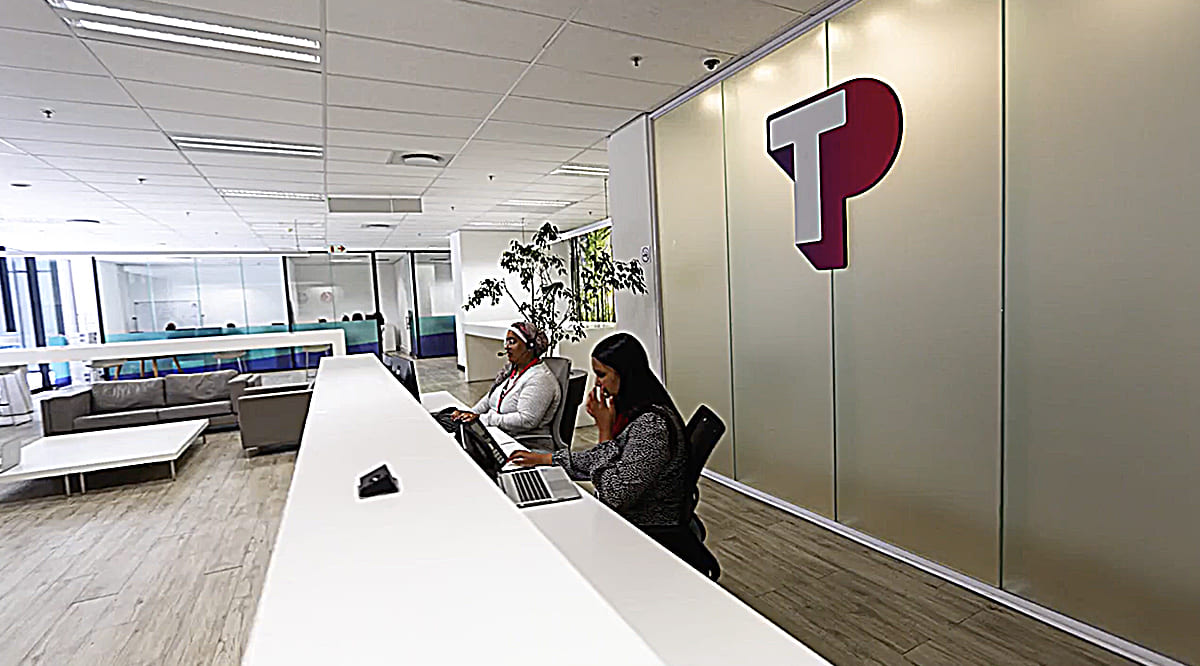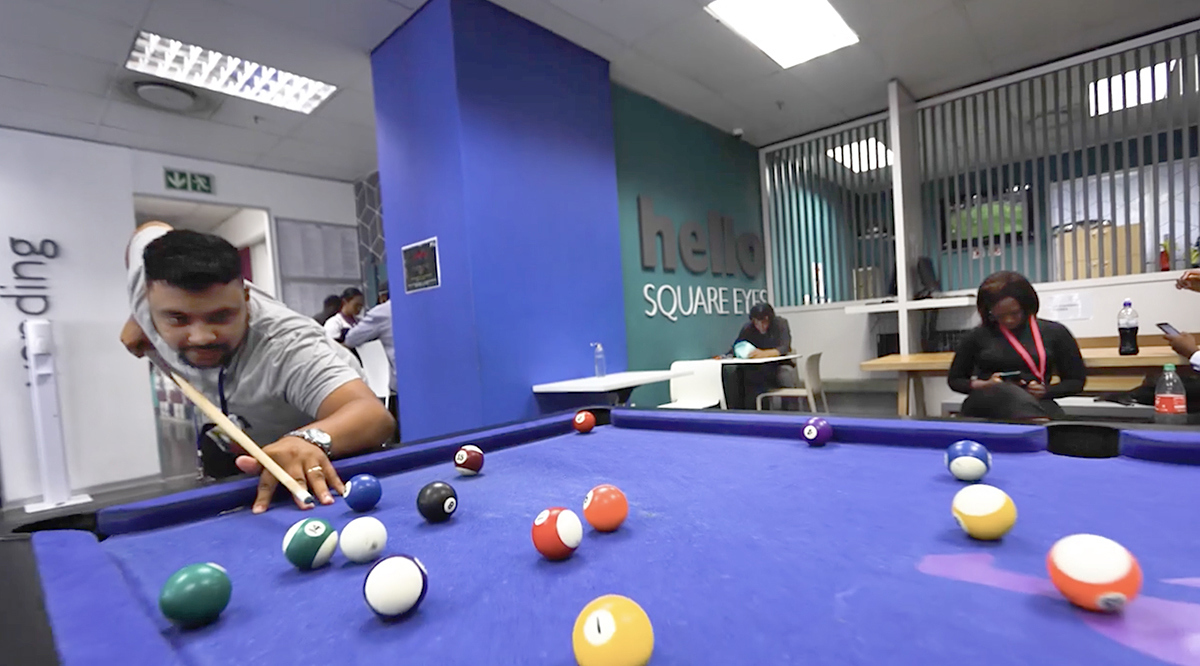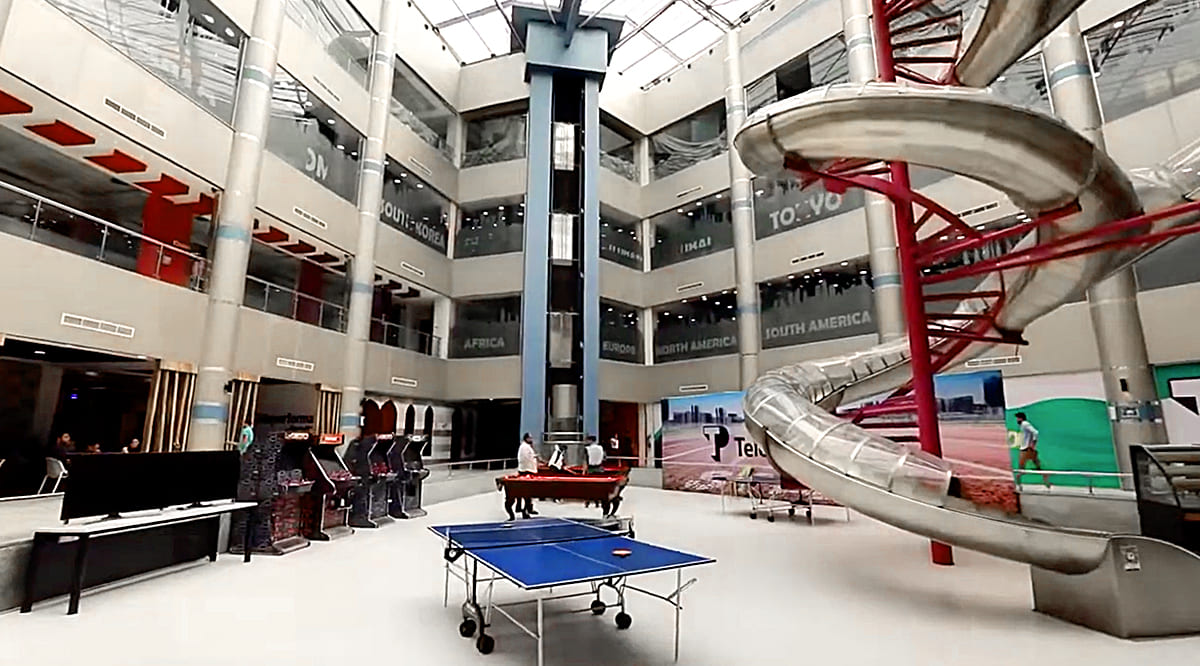

A hidden competitive edge in business services outsourcing.
Learn more about this opportunity from those who have been partnering with global companies in Africa for over 18 years.
Africa holds a hidden advantage that only a few leading companies have leveraged. Its deep-rooted culture of empathy and service strengthens customer loyalty and satisfaction. Combined with other strategic advantages, Africa stands as the strategic choice for business growth in an experience-driven market.

TALENT AND CULTURE

BUSINESS ENVIRONMENT
Educated, tech-savvy, and empathetic professionals eager to build careers in business services outsourcing.
English, French, and Arabic, along with other widely spoken languages across Africa, ensuring seamless global communication.
Access to selective hiring and lower attrition, providing a stable and high-quality workforce.
Africa’s warmth and strong spirit of service create authentic and meaningful customer interactions, enhancing customer satisfaction and brand loyalty.
One of the most cost-effective outsourcing destinations for international brands.
All TP centers in Africa offer low-latency and high-speed international communications for seamless operations.
Africa’s strategic time zones allow businesses to provide continuous, round-the-clock service, ensuring seamless global support.
A model that enables brands to drive social impact while enhancing corporate reputation.
We are your trusted partner for faster, smarter solutions—from strategy to implementation.
Support in English, French, Arabic, and a wide range of other languages and dialects.
Egypt has a population of 116.3 million, an unemployment rate of 7.4%, an inflation rate of 24%, and a GDP growth rate of 3.5%. The country produces about 790K graduates annually. Operating on UTC+2, it has a 1-2 hour difference from Europe and a 6-9 hour difference from the U.S. Investment incentives include 35%-55% tax refunds, a 5% import tax on assets, VAT exemptions, and full profit repatriation. The Digital Egypt Strategy supports Creativa Innovation Hubs and startup growth in fintech, AI, and software.
This region has a population of 35.4 million, with a 4% unemployment rate, 23.5% inflation, and a 4.4% GDP growth rate. It graduates around 107K students annually from its strong higher education system. Operating on GMT, it aligns with the UK time zone and is 1 hour behind Central Europe. The region features over 50 tech hubs, such as MEST and Impact Hub in Accra, supporting startups with training and funding. Additionally, it offers up to 10-year tax holidays, duty exemptions for machinery, and a Free Zones Program that includes tax exemptions and legal guarantees for profit repatriation.
Kenya has a population of 57.3 million, an unemployment rate of 7.2%, an inflation rate of 3%, and a GDP growth rate of 4.7%. It produces around 500K graduates annually. Operating on UTC+3, it is 1-2 hours ahead of Europe and 7-8 hours behind the Eastern Time Zone in the US. The country offers tax deductions of up to 150%, SEZ benefits with reduced corporate tax rates, and fast-tracked licensing for offshore operations. Kenya's "Silicon Savannah," with over 50 tech hubs, ranks 6th in Africa for startup investment and fintech.
This region has a population of 32.8 million, an unemployment rate of 1.82%, an inflation rate of 2.5%, and a GDP growth rate of 6.2%. It has a strong higher education system with approximately 94K graduates annually. Operating on GMT, the region aligns well with Europe and allows a five-hour overlap with EST for North America. The area offers several tax exemptions (ranging from 5 to 15 years), 50% R&D tax credits, and reduced utility costs for electricity, telecommunications, and water. Key tech hubs in support of training, startups, and funding include Adei Technology Hub, ZEBOX West Africa, and Seedstars Abidjan.
Madagascar has a population of 31.8 million, an unemployment rate of 2.1%, an inflation rate of 7.6%, and a GDP growth rate of 4.5%. The country has a strong higher education system with approximately 20K - 25K annual graduates. Operating on UTC+3, Madagascar is 2 hours ahead of CET and 8 hours ahead of EST in the U.S. Businesses in Madagascar’s Free Zones benefit from 0% corporate tax for 2-5 years. Tech hubs like Habaka, Zafy Tody, and Koon-Space foster startups, but the country lags in investment and digital growth.
This country has a population of 38.5 million, an unemployment rate of 13.3%, an inflation rate of 0.7%, and a GDP growth rate of 2.4%. It has a strong higher education system with 88K graduates annually and operates on UTC+1, offering good overlap with the U.S. Incentives include 0% tax in free zones for 5 years, a 20% standard rate, 30% grants on project costs, VAT and duty exemptions, and a 15% tax cap for CFCs. The Digital 2030 strategy aims for 240K digital jobs, $10.36 billion contribution to GDP, and scaling startups to 3K.
This region has a population of 234.6 million, an unemployment rate of 4.3%, an inflation rate of 34.8%, and a GDP growth rate of 3.19%. It produces 600K graduates annually from its strong higher education system. Operating on UTC+1, it aligns with several European countries and has a 5–6 hour difference with the US. The region offers a 3-year tax holiday, infrastructure tax relief, and R&D deductions of up to 140%. Innovation hubs like CcHUB and TechHUB, along with the 3MTT program, aim to train 3 million individuals in tech and programming.
Senegal has a population of 18.7 million and an unemployment rate of 20.3%. The inflation rate is 1.8%, and the GDP growth rate stands at 9.3%. The region has a higher education system that produces approximately 100K graduates annually. Senegal operates on GMT, is 1 hour behind CET, and 5 to 8 hours ahead of U.S. Eastern Time. The country offers 3-year tax exemptions, a 30% corporate income tax (CIT) rate, and benefits in Special Economic Zones (SEZs), including a reduced 15% CIT and import duty exemptions. The tech sector is experiencing growth, with $36 million raised in 2024 and a projected $336 million in venture capital by 2025, supported by hubs such as Diamniadio Digital City and CTIC Dakar.
This region has a population of 61.6 million, with an unemployment rate of 32.2%, an inflation rate of 4.5%, and a GDP growth rate of 1.1%. It produces around 225K graduates annually and operates in the UTC+2 time zone, overlapping with the US by 6-7 hours. Financial grants for offshore job creation offer incentives up to €13K per job, with additional rewards for exceeding targets. Silicon Cape and The Innovation Hub promote startup growth and innovation, supporting IP filings and job creation.
Togo has a population of 9.47 million, with an unemployment rate of 2.05%, inflation at 2.2%, and a GDP growth rate of 5.3%. It has a robust higher education system, producing around 35K graduates annually. Operating on GMT, Togo is 5 hours ahead of Eastern Standard Time (EST). The country offers tax exemptions, VAT-free imports, lower utility costs, and 100% foreign ownership for investments over $100K. Togo promotes tech growth through initiatives like the Djanta Tech Hub and Digital Transformation Center as part of its Digital 2025 Strategy.
Tunisia has a population of 12.6 million and an unemployment rate of 16%. The inflation rate is 6%, and GDP growth is 2.1%. The country produces about 65K university graduates annually. Operating on UTC+1, Tunisia has a 6-hour difference with EST. It offers a 4-year tax exemption, grants up to €866K, 5-year social security relief, and allows full foreign ownership with free profit transfer. The National Digital Strategy 2021-2025 promotes tech innovation, with key hubs like Elgazala Technopark (ICT), Novation City (AI and mechatronics), and Terna Innovation Zone (energy tech).
Support in English, French, Arabic, and a wide range of other languages and dialects.
Egypt has a population of 116.3 million, an unemployment rate of 7.4%, an inflation rate of 24%, and a GDP growth rate of 3.5%. The country produces about 790K graduates annually. Operating on UTC+2, it has a 1-2 hour difference from Europe and a 6-9 hour difference from the U.S. Investment incentives include 35%-55% tax refunds, a 5% import tax on assets, VAT exemptions, and full profit repatriation. The Digital Egypt Strategy supports Creativa Innovation Hubs and startup growth in fintech, AI, and software.
This region has a population of 35.4 million, with a 4% unemployment rate, 23.5% inflation, and a 4.4% GDP growth rate. It graduates around 107K students annually from its strong higher education system. Operating on GMT, it aligns with the UK time zone and is 1 hour behind Central Europe. The region features over 50 tech hubs, such as MEST and Impact Hub in Accra, supporting startups with training and funding. Additionally, it offers up to 10-year tax holidays, duty exemptions for machinery, and a Free Zones Program that includes tax exemptions and legal guarantees for profit repatriation.
Kenya has a population of 57.3 million, an unemployment rate of 7.2%, an inflation rate of 3%, and a GDP growth rate of 4.7%. It produces around 500K graduates annually. Operating on UTC+3, it is 1-2 hours ahead of Europe and 7-8 hours behind the Eastern Time Zone in the US. The country offers tax deductions of up to 150%, SEZ benefits with reduced corporate tax rates, and fast-tracked licensing for offshore operations. Kenya's "Silicon Savannah," with over 50 tech hubs, ranks 6th in Africa for startup investment and fintech.
This region has a population of 32.8 million, an unemployment rate of 1.82%, an inflation rate of 2.5%, and a GDP growth rate of 6.2%. It has a strong higher education system with approximately 94K graduates annually. Operating on GMT, the region aligns well with Europe and allows a five-hour overlap with EST for North America. The area offers several tax exemptions (ranging from 5 to 15 years), 50% R&D tax credits, and reduced utility costs for electricity, telecommunications, and water. Key tech hubs in support of training, startups, and funding include Adei Technology Hub, ZEBOX West Africa, and Seedstars Abidjan.
Madagascar has a population of 31.8 million, an unemployment rate of 2.1%, an inflation rate of 7.6%, and a GDP growth rate of 4.5%. The country has a strong higher education system with approximately 20K - 25K annual graduates. Operating on UTC+3, Madagascar is 2 hours ahead of CET and 8 hours ahead of EST in the U.S. Businesses in Madagascar’s Free Zones benefit from 0% corporate tax for 2-5 years. Tech hubs like Habaka, Zafy Tody, and Koon-Space foster startups, but the country lags in investment and digital growth.
This country has a population of 38.5 million, an unemployment rate of 13.3%, an inflation rate of 0.7%, and a GDP growth rate of 2.4%. It has a strong higher education system with 88K graduates annually and operates on UTC+1, offering good overlap with the U.S. Incentives include 0% tax in free zones for 5 years, a 20% standard rate, 30% grants on project costs, VAT and duty exemptions, and a 15% tax cap for CFCs. The Digital 2030 strategy aims for 240K digital jobs, $10.36 billion contribution to GDP, and scaling startups to 3K.
This region has a population of 234.6 million, an unemployment rate of 4.3%, an inflation rate of 34.8%, and a GDP growth rate of 3.19%. It produces 600K graduates annually from its strong higher education system. Operating on UTC+1, it aligns with several European countries and has a 5–6 hour difference with the US. The region offers a 3-year tax holiday, infrastructure tax relief, and R&D deductions of up to 140%. Innovation hubs like CcHUB and TechHUB, along with the 3MTT program, aim to train 3 million individuals in tech and programming.
Senegal has a population of 18.7 million and an unemployment rate of 20.3%. The inflation rate is 1.8%, and the GDP growth rate stands at 9.3%. The region has a higher education system that produces approximately 100K graduates annually. Senegal operates on GMT, is 1 hour behind CET, and 5 to 8 hours ahead of U.S. Eastern Time. The country offers 3-year tax exemptions, a 30% corporate income tax (CIT) rate, and benefits in Special Economic Zones (SEZs), including a reduced 15% CIT and import duty exemptions. The tech sector is experiencing growth, with $36 million raised in 2024 and a projected $336 million in venture capital by 2025, supported by hubs such as Diamniadio Digital City and CTIC Dakar.
This region has a population of 61.6 million, with an unemployment rate of 32.2%, an inflation rate of 4.5%, and a GDP growth rate of 1.1%. It produces around 225K graduates annually and operates in the UTC+2 time zone, overlapping with the US by 6-7 hours. Financial grants for offshore job creation offer incentives up to €13K per job, with additional rewards for exceeding targets. Silicon Cape and The Innovation Hub promote startup growth and innovation, supporting IP filings and job creation.
Togo has a population of 9.47 million, with an unemployment rate of 2.05%, inflation at 2.2%, and a GDP growth rate of 5.3%. It has a robust higher education system, producing around 35K graduates annually. Operating on GMT, Togo is 5 hours ahead of Eastern Standard Time (EST). The country offers tax exemptions, VAT-free imports, lower utility costs, and 100% foreign ownership for investments over $100K. Togo promotes tech growth through initiatives like the Djanta Tech Hub and Digital Transformation Center as part of its Digital 2025 Strategy.
Tunisia has a population of 12.6 million and an unemployment rate of 16%. The inflation rate is 6%, and GDP growth is 2.1%. The country produces about 65K university graduates annually. Operating on UTC+1, Tunisia has a 6-hour difference with EST. It offers a 4-year tax exemption, grants up to €866K, 5-year social security relief, and allows full foreign ownership with free profit transfer. The National Digital Strategy 2021-2025 promotes tech innovation, with key hubs like Elgazala Technopark (ICT), Novation City (AI and mechatronics), and Terna Innovation Zone (energy tech).








A strategic and comprehensive approach to driving business success
TP is a trusted global partner in business transformation, delivering value by combining four dimensions. This integration enables a personalized, results-driven approach, proven by our clients' success.


Together, we adapt to global challenges with innovative solutions that create a competitive advantage. With a personalized approach, we address each client’s unique needs, delivering measurable results and proven success.
*Serving the French market from our operations in Morocco and France